Related Research Articles
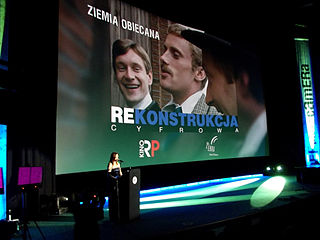
The history of cinema in Poland is almost as long as the history of cinematography, and it has universally recognized achievements, even though Polish films tend to be less commercially available than films from several other European nations.

Emmanuelle Seigner is a French actress and singer. She is known for her roles in The Diving Bell and the Butterfly (2007), The Ninth Gate (1999) and Frantic (1988). She has been nominated for a César Award for Best Actress for Venus in Fur (2013), and for two César Awards for Best Supporting Actress in Place Vendôme (1998) and La Vie en Rose (2007). She has been married to Polish film director Roman Polanski since 1989.

Stanley Myers was an English composer and conductor, who scored over sixty films and television series, working closely with filmmakers Nicolas Roeg, Jerzy Skolimowski and Volker Schlöndorff. He is best known for his guitar piece "Cavatina", composed for the 1970 film The Walking Stick and later used as the theme for The Deer Hunter. He was nominated for a BAFTA Award for Best Film Music for Wish You Were Here (1987), and was an early collaborator with and mentor of Hans Zimmer.

Jerzy Skolimowski is a Polish film director, screenwriter, dramatist, actor and painter. Beginning as a screenwriter for Andrzej Wajda's Innocent Sorcerers (1960), Skolimowski has made more than twenty films since his directorial debut The Menacing Eye (1960). In 1967 he was awarded the Golden Bear prize for his Belgian film The Departure (1967). Among his other notable films is Deep End (1970), starring Jane Asher and John Moulder Brown.

Deep End is a 1970 psychological comedy drama film directed by Jerzy Skolimowski and starring Jane Asher, John Moulder Brown and Diana Dors. It was written by Skolimowski, Jerzy Gruza and Boleslaw Sulik. The film was an international co-production between West Germany and the United Kingdom. Set in London, the film centers on a 15-year-old boy who develops an infatuation with his older, beautiful co-worker at a suburban bath house and swimming pool.

Innocent Sorcerers is a 1960 Polish psychological romantic drama film directed by Andrzej Wajda, and starring Tadeusz Łomnicki and Krystyna Stypułkowska. Its plot follows a young womanizer meeting another yet finally interesting girl, who all but forces herself into his apartment where they play the game of appearances, unable to confess their love to each other.
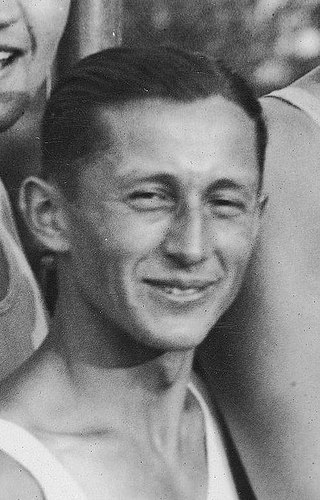
Jerzy Walerian Skolimowski was a Polish rowing coxswain who competed in the 1928 Summer Olympics, in the 1932 Summer Olympics, and in the 1936 Summer Olympics.

King, Queen, Knave is a 1972 West German comedy film directed by Jerzy Skolimowski, based on the novel of the same name by Vladimir Nabokov.
Ręce do góry is a Polish drama film directed by Jerzy Skolimowski. It is the fourth of a series of semi-autobiographical films in which Skolimowski himself plays his alter ego Andrzej Leszczyc. At the time it was banned in Poland, under the Communist regime, for 18 years because it depicted the Stalinist past.
Success Is the Best Revenge is a 1984 French-British drama film directed by Jerzy Skolimowski and starring Michael York. It was entered into the 1984 Cannes Film Festival.
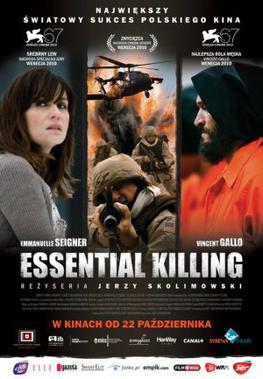
Essential Killing is a 2010 Polish survival political thriller film co-written and directed by Jerzy Skolimowski and starring Vincent Gallo and Emmanuelle Seigner. Gallo stars as an Islamic insurgent who finds himself fighting for survival in a frozen woodland, pursued by soldiers.
Four Nights with Anna is a 2008 drama film directed by Jerzy Skolimowski. It stars Artur Steranko and Kinga Preis. It tells the story of a man who visits a woman in her sleep. The film had its world premiere as the opening film of the Directors' Fortnight section at the 2008 Cannes Film Festival on 15 May 2008. It was released in Poland on 12 September 2008, and in France on 5 November 2008.
Identification Marks: None is a 1965 Polish drama film directed by Jerzy Skolimowski. It was the first feature film directed by Skolimowski, after the shorts Erotique, Little Hamlet, The Menacing Eye, Boxing and Your Money or Your Life.
Andrzej Leszczyc is a fictional character created and performed by Jerzy Skolimowski. He appears in three Skolimowski's early movies: Identification Marks: None, Walkover and Hands Up!.
Walkover is a 1965 Polish drama film directed by Jerzy Skolimowski.
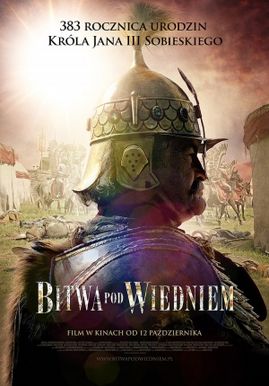
The Day of the Siege: September Eleven 1683 is a 2012 English-language Polish and Italian historical drama film based on the 1683 Battle of Vienna and directed by Renzo Martinelli. The film was released on 12 October 2012.

11 Minutes is a 2015 Polish-Irish thriller film written and directed by Jerzy Skolimowski. It stars Richard Dormer, Paulina Chapko, Wojciech Mecwaldowski, Andrzej Chyra, Dawid Ogrodnik, Agata Buzek, Piotr Glowacki, Mateusz Kościukiewicz, Ifi Ude, Jan Nowicki, Anna Maria Buczek, and Lukasz Sikora. Set in Warsaw, it tells the story of multiple people's lives over the course of eleven minutes in a single day. The film had its world premiere in the Competition section at the 72nd Venice International Film Festival on 9 September 2015. It was selected as the Polish entry for the Best Foreign Language Oscar at the 88th Academy Awards, but it was not nominated.
Skolimowski is a Polish surname. It may refer to:
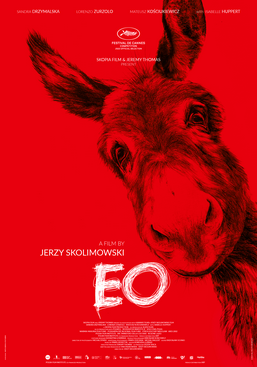
EO is a 2022 Polish-Italian drama road movie directed by Jerzy Skolimowski. Inspired by Robert Bresson's 1966 film Au Hasard Balthazar, it follows the life of a donkey introduced to us while featured in a Polish circus.
30 Door Key is a 1991 English-language drama film directed and produced by Jerzy Skolimowski, and written by Jerzy Skolimowski, Michał Skolimowski, and Józef Skolimowski. It starred Iain Glen, Robert Stephens, and Crispin Glover. The film was based on the 1937 book Ferdydurke by Witold Gombrowicz.